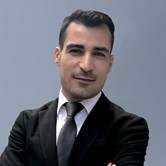WASHINGTON, DC – Neither Turkey nor the Syrian Democratic Forces (SDF) really wants a fight in northern Syria so there is some flexibility to make a deal that would be amenable to all parties, said an analyst.
The SDF is not a small force, it is a well-trained and equipped army that would be fighting on home turf, including urban centres with large Kurdish populations. If Turkey, with its NATO might, were to follow through on its threats and launch an offensive east of the Euphrates, “This would be a bloody fight,” said David Pollock, Bernstein Fellow at The Washington Institute, on The Washington Perspective on Friday.
One “promising” idea, he posited, would be deployment of the Roj Peshmerga – a Syrian Kurdish force formed and trained by the Kurdistan Democratic Party (KDP) in the Kurdistan Region.
“It certainly would be easier for Turkey to accept the Roj [Peshmerga] under KDP or KRG patronage than to accept the YPG controlling that area,” said Pollock.
The YPG are the Kurdish People’s Protection Units (YPG) that lead the SDF. While the YPG have resisted allowing the Roj Peshmerga to be deployed in their territory, Pollock argued they could be more open to the accepting it “as part of a deal that would keep Turkey away.”
The KDP – especially its leader Masoud Barzani – has been vocal in defending Syrian Kurds as they face threats from Turkey. He has raised his concerns during diplomatic meetings, including with US Secretary of State Mike Pompeo.
There is precedent for coordination among Syrian Kurds, Iraqi Kurds, and Turkey. It happened when Ankara let Peshmerga from the Kurdistan Region transit through Turkey to bolster YPG forces in routing ISIS from Kobane.
French and British troops already on the ground in northern Syria could also play a role in securing a safe zone, perhaps with a token United Nations presence as well.
“All of these things are possibilities,” said Pollock. “I think that the United States is very flexible on these sorts of details… and mostly interested in whatever works. We don’t have a political agenda. But I think Turkey is going to be a more difficult partner in trying to make this work.”
The SDF is not a small force, it is a well-trained and equipped army that would be fighting on home turf, including urban centres with large Kurdish populations. If Turkey, with its NATO might, were to follow through on its threats and launch an offensive east of the Euphrates, “This would be a bloody fight,” said David Pollock, Bernstein Fellow at The Washington Institute, on The Washington Perspective on Friday.
One “promising” idea, he posited, would be deployment of the Roj Peshmerga – a Syrian Kurdish force formed and trained by the Kurdistan Democratic Party (KDP) in the Kurdistan Region.
“It certainly would be easier for Turkey to accept the Roj [Peshmerga] under KDP or KRG patronage than to accept the YPG controlling that area,” said Pollock.
The YPG are the Kurdish People’s Protection Units (YPG) that lead the SDF. While the YPG have resisted allowing the Roj Peshmerga to be deployed in their territory, Pollock argued they could be more open to the accepting it “as part of a deal that would keep Turkey away.”
The KDP – especially its leader Masoud Barzani – has been vocal in defending Syrian Kurds as they face threats from Turkey. He has raised his concerns during diplomatic meetings, including with US Secretary of State Mike Pompeo.
There is precedent for coordination among Syrian Kurds, Iraqi Kurds, and Turkey. It happened when Ankara let Peshmerga from the Kurdistan Region transit through Turkey to bolster YPG forces in routing ISIS from Kobane.
French and British troops already on the ground in northern Syria could also play a role in securing a safe zone, perhaps with a token United Nations presence as well.
“All of these things are possibilities,” said Pollock. “I think that the United States is very flexible on these sorts of details… and mostly interested in whatever works. We don’t have a political agenda. But I think Turkey is going to be a more difficult partner in trying to make this work.”





Comments
Rudaw moderates all comments submitted on our website. We welcome comments which are relevant to the article and encourage further discussion about the issues that matter to you. We also welcome constructive criticism about Rudaw.
To be approved for publication, however, your comments must meet our community guidelines.
We will not tolerate the following: profanity, threats, personal attacks, vulgarity, abuse (such as sexism, racism, homophobia or xenophobia), or commercial or personal promotion.
Comments that do not meet our guidelines will be rejected. Comments are not edited – they are either approved or rejected.
Post a comment